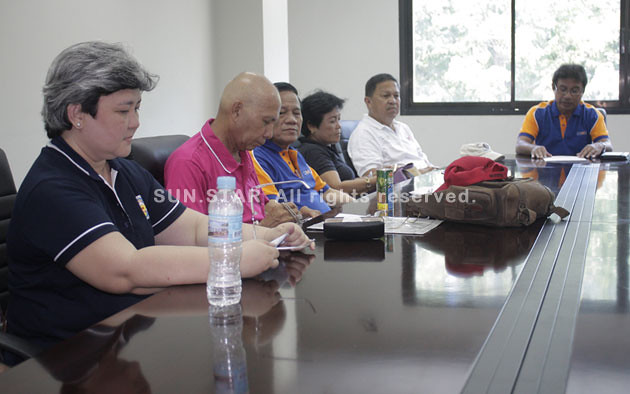Published :
Friday, October 07, 2011 00:00
WHILE MILLIONS of Filipinos have been suffering from the spiraling costs
of electricity, more than half a million member-consumers of seven
electric cooperatives in the country have actually been
enjoying a monthly power rate cut of as much as 78 centavos per kilowatt
hour since August this year.
This translates to a power rate
reduction of P78 per month in the electricity bills of small households
consuming 100 kilowatt-hours (kwH) or P780 per month for businesses
consuming 1,000 kilowatt-hours.
This was revealed yesterday by
Association of Philippine Electric Cooperatives (APEC) Partylist
Congressman Ponciano Payuyo as he disclosed that an additional half a
million member- consumers of five additional electric cooperatives will
also soon enjoy lower electricity bills through similar power rate
reductions before the end of this year after they secure their
respective certificate of tax exemption from the Bureau of Internal
Revenue (BIR).
Payuyo explained that the power rate cuts stem
from the tax exemption privileges that are given to the 12 electric
cooperatives which are registered with the Cooperative Development
Authority (CDA) under Republic Act 9520, otherwise known as the Philippine Cooperative Code of 2008.
“
All
tax exemption privileges enjoyed by CDA-registered electric
cooperatives are passed on to our member-consumers in the form of power
rate reductions,” explained Payuyo, an accountant by profession, who was
General Manager of the Palawan Electric Cooperative (PALECO) prior to
his assumption as APEC partylist representative.
Payuyo said that the 106 electric cooperatives that opted to stay with the National Electrification
Administration (NEA) are not entitled to the tax exemption privileges
granted to CDA- registered electric cooperatives because they are not
true cooperatives owned by their members.
He explained that
Article 130 of RA 9520 states that, “Electric cooperatives registered
with the NEA under Presidential Decree No. 269, as amended which opt not
to register with the (CDA) are allowed to retain the word ‘cooperative’
in their registered names; Provided, that they shall not be entitled to
the benefits and privileges under this Code.”
Payuyo said that the tax exemption privileges under RA 9520 cover all taxes and fees
including
the 12 percent value-added tax (VAT), local business tax, income tax,
real property tax, franchise tax, import tax, etc.
He also
quoted Article 60 of RA 9520 on the Tax Treatment of Cooperatives which
states that, “Duly registered cooperatives under this Code which do not
transact any business with non-members or the general public shall not
be subject to any taxes and fees imposed under the internal revenue laws
and other tax laws.”
He said the tax exemption of the 12
CDA-registered electric coops give them savings that are passed on to
their members as monthly power rate cuts, as follows:
Palawan Electric Cooperative (PALECO) - 40 centavos per kilowatt-hour
Pangasinan Electric Cooperative 1 (PANELCO-1) - 78 centavos per kilowatt-hour
Pangasinan Electric Cooperative 3 (PANELCO-3) - 4 centavos per kilowatt-hour
San Jose City (Nueva Ecija) Electric Cooperative (SAJELCO) - 27 centavos per kilowatt-hour
Sorsogon Electric Cooperative 2 (SORECO-2) - 65 centavos per kilowatt-hour
Nueva Vizcaya Electric Cooperative (NUVELCO) - 28 centavos per kilowatt-hour
Negros Occidental Electric Cooperative (NOCECO) - 70 centavos per kilowatt-hour
He
said the member-consumers of the 106 electric cooperatives who opted to
stay with NEA may enjoy similar electricity rate cuts and lower monthly
electricity bills if they register with the CDA.
Because of
this, Payuyo said he is encouraging all member-consumers of
NEA-registered electric cooperatives as well as new distribution
utilities to register with the CDA “in order for them to earn the right
to avail of tax exemptions and other privileges under RA 9520 and thus,
bring down their monthly electricity bills.”
He cited the case
of the Agusan del Norte Electric Cooperative (ANECO) whose member-
consumers recently voted to register with the CDA through a referendum
in 15 districts as provided under Article 127 of RA 9520.
“While RA 9520
only requires the affirmative votes of 20 percent of all members in
good standing, 31,000 member-consumers, or nearly 30 percent ANECO’s
110,000 membership base, voted to register with CDA,” Payuyo said.
He
said
ANECO’s management and board of directors are now accountable to
their members under the principle of democratic member control of RA
9520. “As proof of their ownership of ANECO, members will be issued
share capital certificates reflecting their contributions to the coop,”
Payuyo said.”
http://bit.ly/nDbcmf

